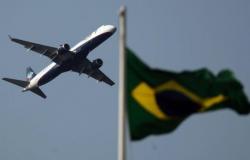In Brazil, the income of the richest 10% is more than 14 times greater than the income of the poorest 40%, according to data from IBGE’s Continuous PNAD, released last Friday. The survey considers the year 2023 and this difference is the smallest ever recorded in the country. Even so, it highlights inequality, showing that the average monthly income of the population with the highest household income per person was R$7,580, while Brazilians with the lowest income received only R$527 per month.
In an interview with Central Brazil this Tuesday (23), Maitê Gauto, programs and advocacy manager at Oxfam Brasil, stated that the reduction in this difference is a good sign when looking at a broader scenario in the country, especially taking into account the crisis generated in the context of the pandemic. However, there is other data that shows that the disparity is still enormous, such as the fact that “the richest 1% have their income almost 40 times higher than the income of the poorest 40%”.
The research shows an increase in the number of families receiving income transfer programs, such as Bolsa Família, which explains the increase in the income of the poorest. But Gauto explains that it is necessary to pay attention to other factors before determining that the situation will remain positive.
“We need to look at this number [e entender] how much people are actually receiving and how much this impacts the quality of life considering inflation, the increase in costs and everything that we accumulated during the pandemic period, and the resilience of families in relation to other possible impacts of a crisis economy, or even the climate crisis”, he points out.
Gauto also warns that the data indicates a reduction in poverty, and not a reduction in inequality. “When we have a scenario where the mass of households receiving an income transfer program has increased, and yet the difference between the richest 10% or 1% is 14 times and almost 40 times, we continue in a scenario of brutal inequality.”
:: Power of agribusiness and absence of the State are determining factors for the increase in hunger in Southern Cone countries ::
Therefore, in addition to guaranteeing macroeconomic measures to create jobs and social policies for families in a more vulnerable situation, it is necessary to go further. “The creation of taxes on wealth and extreme wealth in the country is the most efficient and fair measure to reduce poverty and inequality in the country”, he concludes.
The full interview is available in this Tuesday’s (23) edition of Central Brazilwhich can be accessed on the Brasil de Fato YouTube channel.
See too
PF investigates invasion of the federal government’s payment system. It is suspected that resources were misappropriated, but the hypothesis of a hacker attack was ruled out.
Indigenous people gathered at the Terra Livre Camp, in Brasília, deliver a letter with demands to the Three Powers.
Editing: Nicolau Soares
Tags: poverty reduction inequality
--




